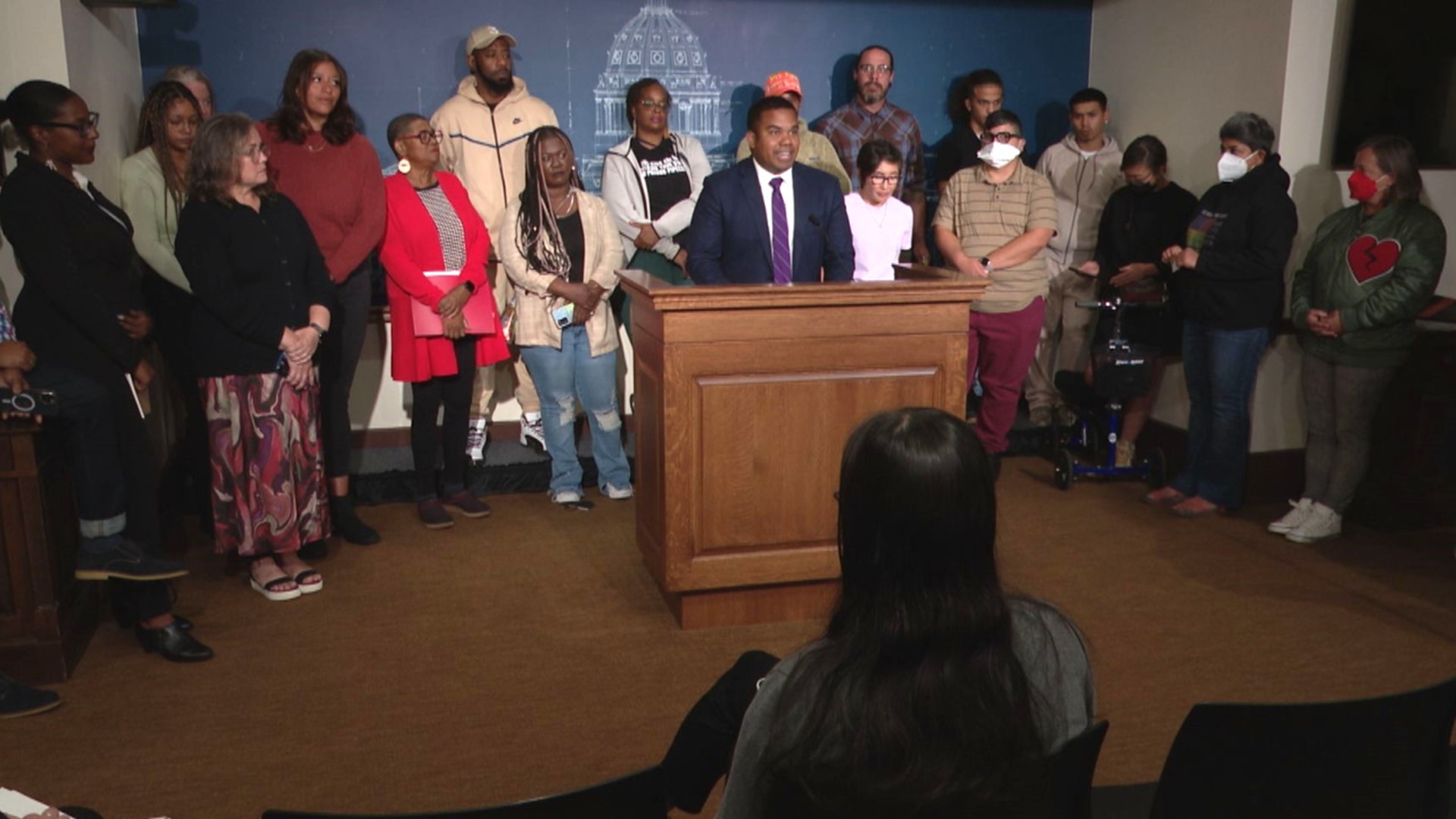ST PAUL, Minn. — A group of parents, educators, experts, and advocates converged on the State Capitol Thursday to speak in defense of a new state law that bars school employees and contractors from using physical restraints on students.
Facedown holds, also known as prone holds, were already barred for use on special education students in Minnesota, as well as jail and prison inmates. The 2023 Legislature extended that to all students, something members of the "Solutions Not Suspensions Coalition" defended.
"Students deserve educators and school resource officers who can ensure safety without resorting to life-threatening holds," Bernadeia Johnson, the former superintendent of the Minneapolis Public Schools, told reporters.
"There are a lot of misunderstandings about student behaviors in schools, and in my experiences, students usually need more support and more opportunities to learn pro-social behaviors."
Beginning in mid-August, law enforcement organizations began warning that the new law will tie the hands of School Resource Officers under contract to school districts to work inside schools. Their reading of the law led them to believe SROs will be vulnerable to excessive force lawsuits for using the same restraint tactics they've used in the past break up fights on school property or stop trespassers.
The coalition defending the new law agrees with an opinion issued by Attorney General Keith Ellison that the school employees and SROs can still use reasonable force to restraint students if needed to prevent bodily harm.
"It's incredibly clear. The Minnesota League of Cities has put out a memorandum on this that provides a really thorough analysis," Jessica Webster of Mid-Minnesota Legal Aid's Legal Services Advocacy Project explained.
"If a child throws a tray on the ground, you can't tackle that child or put hands on that child because that's not a threat to others and there's really no reason to do that."
A growing number of police and sheriff's departments in Minnesota have suspended their SRO contracts in the past two weeks, choosing not to station officers in schools until the law is changed. Republicans have called on Gov. Walz to call a special session to repeal that part of the law, which they call confusing.
"I'm here to say we are against any special session that would even consider any further clarification," Marika Pfefferkorn of the Twin Cities Innovation Alliance told reporters.
"I know how to spell clarity and we can all see with clarity that this law needs to stay intact."
Many of those at Thursday's news conference urged law enforcement to take another look at the law and do training to make it clear to SROs when they can use physical force.
"In those instances where there's a fight going on there's a threat of bodily harm. Restraints and holds can happen in those instances," Josh Crosson of EdAllies remarked.
The group asserts there are better ways to calm children who are acting out and causing disruptions.
"Dangerous prone restraints, choke holds, do not keep our children in our schools safe. In fact, it creates the exact opposite of safety," Ale Ouande, a parent, asserted.
"The use of restraints is traumatic an perpetuates the trauma cycle in schools."
The new law states the following:
"An employee or agent of a district, including a school resource officers, security personnel, or police officer contracted with a district shall not use a prone restraint. An employee or agent of the district, including a school resource officers, security personnel, or police officer contracted with a district, shall not inflict any form of physical holding that restricts or impairs a pupil’s ability to breath, restricts or impairs a pupil’s ability to communicate distress; places pressure or weight on a pupil’s head, throat, neck, chest, lungs, sternum, diaphragm, back, or abdomen; or results in straddling a pupil’s torso."
Another passage in the same law reads, "Nothing in this section precludes the use of reasonable force under section 121A.582."
That points to another part of the same chapter which reads, "A school employee, school bus driver, or other agent of a district, in exercising the person’s lawful authority, may use reasonable force when it is necessary under the circumstances to restrain a student to prevent bodily harm or death of the student or another."
Law enforcement groups argue that the conjunctive "or" should be added to the reasonable force section. They’d like it to read, "to restrain a student OR to prevent bodily harm or death."

